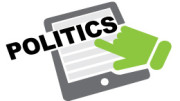[This is Part 2 in a series on the Ellwood City Area School District’s Makerspace program. Parts 1 and 3 can be read here and here.]
Perry Lower Intermediate School will be equipped with a Wolverine Workshop for the 2015-16 school year. The workshop will have high-tech equipment such as a 3D printer and robotics.
However, the Wolverine Workshop is one of several planned Makerspaces in the Ellwood City Area School District. The administration plans to create one at Lincoln High School.
An old computer lab next to the library will be renovated and the wall between the room and the library demolished. As such, the workshop will act as an extension of the library. Rather than simply serving as storage room for books, the library will be transformed into an activity hub where books and computers are used as resources for the workshop.
Hartman will eventually have its own workshop, although until it’s completed, the fifth and six graders can use Lincoln’s. Down the line, North Side will also get one, providing a complete educational experience for students from kindergartens through twelfth grade.
“With the PSSA, students have one test that is the sole determination of their ability,” Superintendent Joe Mancini said. “This program will give kids thirteen years to succeed.”
In the elementary schools, teachers will use the makerspace once or twice a week as a supplement to their regular curriculum, preferably in a way that ties into lessons. North Side will be more of play area for the young children to get familiar with the equipment. In Perry and Hartman, students will become fully acquainted with the equipment and practices.
According to Mancini, students will be able to do computer programming by the time they enter high school.
At Lincoln, there will be mandatory experiential makerspace classes in seventh and eighth grade where students will become familiar with the high school’s lab, much like there are mandatory art and home ed classes. From 9-12 grades, there will be a variety of electives with a more specialized focus. A specific list has not yet been compiled.
In the long term, Mancini and Lincoln Assistant Principal John Sovich are hoping to renovate the basement’s workshops into modern Makerspaces. While the library shop will be used for digital design and smaller scale crafting, the basement can be for larger metal and wood projects.
A Makerspace workshop is part of an overall education consolidation theory called STEAM (science, technology, engineering, arts, and mathematics). STEAM itself was preceded by STEM initiatives, which is an attempt to blend the four disciplines to create a well-rounded, multi-field education. The arts where added to bridge the gap between the hard academics subjects and the “fuzzies.”
The long-term goal of STEAM is to create a diverse, skilled workforce with expertise in multiple fields and excellent potential for career diversity. A STEAM engineer doesn’t just know engineering, but has the interpersonal skills necessary for workplace success and the critical thinking skills for innovation.
The idea for makerspaces in school can be traced to Professor Neil Garshenfield of MIT, who started a class on the premise of “how to make anything” to give students a creative venue to develop, design, and make projects.
Sovich said the most difficult STEAM concept is that students have to fail and then correct their mistakes, contrary to the way testing education is focused. Lincoln High School, which received silver award status from US News based on college preparedness, has always been an excellent environment for testing.
However, Mancini expressed that mandated testing requirements have made it difficult to create an engaging, interesting learning environment, and it is hoped the Makerspaces will spark student interest. Furthermore, Mancini and Sovich both believe problem solving and communication skills are far more important to employers.
“A diploma may fail you, but you can always fall back on your skills,” Sovich said.
As technology is always changing, STEAM programs do not focus on teaching how to use a specific piece of equipment or software, but rather how to teach oneself equipment and software.
“This is something that will give us an edge of Pittsburgh suburban schools,” Mancini said.
“A lot of schools say they have Makerspaces,” Sovich said, explaining that other schools in the area may have a few pieces of advanced technology, but nothing on the scale that Ellwood is planning.



Be the first to comment on "Ellwood City School District Plans K-12 Hands-On Technology Workshops"